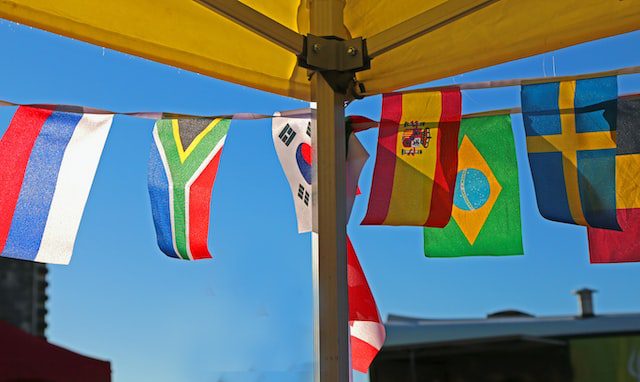Scholarship details
The Friendship Commission Scholarship is a prestigious scholarship program that promotes educational and cultural exchange between Japan and the United States. The scholarship aims to strengthen the ties between the two countries by supporting American scholars, graduate students, and professionals who wish to conduct research or study in Japan.
The deadline date is for January 24, 2024. Then the second deadline date is for April 24, 2023.
What are the Eligibility Requirements for the Friendship Commission Scholarship
Here are some key features of the Japan-United States Friendship Commission Scholarship:
- Purpose: The scholarship provides funding for research, study, or specialized training in a wide range of fields, including the humanities, social sciences, and natural sciences.
- Duration: The scholarship duration can vary depending on the specific program or project, ranging from a few months to a year or more.
- Eligibility: The scholarship is open to U.S. citizens who have a bachelor’s degree or higher qualifications, and who demonstrate a strong interest in Japanese culture, language, or academic disciplines related to Japan.
- Support: The scholarship provides financial support, which typically includes a monthly stipend, travel expenses, health insurance, and sometimes language training.
- Application Process: Interested applicants typically need to submit a detailed research or study proposal, academic transcripts, letters of recommendation, and a personal statement outlining their interest in Japan and the proposed project.
Source: Pexels.com
What is the total award for the Friendship Commission Scholarship:
The Friendship Commission (JUSFC) offers grants to support research and writing projects focusing on various aspects of modern Japanese society and political economy, Japan’s international relations, and U.S.-Japan relations. This program aims to foster innovative research that explores these subjects within broader regional and global contexts. The emphasis is on comparative and contemporary approaches that contribute to scholarly knowledge and enhance public understanding.
Researchers from disciplines such as anthropology, economics, geography, history, international relations, linguistics, political science, psychology, and sociology are encouraged to apply. The grants provided by JUSFC typically lead to the creation of valuable scholarly resources, including articles, monographs, books, e-books, digital materials, translations, editions, or other forms of scholarly output.
By supporting research projects that shed light on modern Japan and its relationship with the United States, the JUSFC grants contribute to a deeper understanding of these topics and their significance in today’s world.
How do you apply for the Friendship Commission Scholarship:
Aligned with the Japan-United States Friendship Commission’s (JUSFC) dedication to nurturing the future leaders responsible for cultivating and strengthening the Japan-U.S. relationship, the National Endowment for the Humanities (NEH) actively welcomes applications from junior scholars. Junior scholars, in this context, refer to individuals who have completed their terminal degree within the past seven years.
NEH recognizes the importance of supporting and empowering emerging scholars who are in the early stages of their academic careers. By encouraging junior scholars to apply for this program, NEH aims to provide them with valuable opportunities to contribute to the advancement of knowledge and understanding in the Japan-U.S. context.
- There is a government link to the application package that has funding information, and total information on what is needed to apply.
- Students must be a U.S. citizen or have permanent residency.
- Applicants must be invested and involved in learning Japanese culture, ethics, or language.
This package information can change from year to year, but there is the ability to download for the 2024 which will be updated.
Step by Step Student Visa Process for United States
Here is a step-by-step overview of the process:
- Receive Acceptance from a U.S. Institution: Apply to and receive acceptance from a U.S. educational institution authorized to issue Form I-20, which is required for the student visa application.
- Pay the SEVIS Fee: Pay the Student and Exchange Visitor Information System (SEVIS) fee, which is a mandatory fee for F and M visa applicants. This fee helps support the administration of the SEVIS program.
- Complete the Nonimmigrant Visa Application: Fill out the online Nonimmigrant Visa Application (Form DS-160) on the U.S. Department of State’s website. This application collects personal information and details about your intended stay in the U.S.
- Schedule Visa Interview: Schedule an appointment for a visa interview at the U.S. Embassy or Consulate in your home country. The interview is a crucial part of the visa process.
- Pay Visa Application Fee: Pay the visa application fee, also known as the Machine-Readable Visa (MRV) fee, before your interview. The fee amount can vary depending on the country and visa category.
- Prepare Required Documents: Gather the necessary documents for your visa interview. These typically include:
- Passport: A valid passport that is valid for at least six months beyond your intended period of stay in the U.S.
- Form I-20: The Form I-20 issued by your U.S. educational institution.
- SEVIS Fee Receipt: Proof of payment for the SEVIS fee.
- DS-160 Confirmation Page: Print the confirmation page after completing the DS-160 application.
- Financial Documents: Documents demonstrating your ability to finance your education and living expenses in the U.S.
- Academic Documents: Transcripts, diplomas, or certificates from previous educational institutions.
- Attend Visa Interview: Attend the scheduled visa interview at the U.S. Embassy or Consulate. The consular officer will ask you questions about your educational plans, financial situation, and ties to your home country. Be prepared to provide honest and concise answers.
- Biometrics Appointment: Depending on your country of residence, you may be required to schedule a biometrics appointment to provide fingerprints and a photograph.
- Wait for Visa Processing: After the interview, the consular officer will determine whether you qualify for the student visa. If approved, you may need to wait for administrative processing, which can vary in duration.
- Receive Your Visa: Once the visa is approved and processing is complete, you will receive your passport with the visa stamp. Verify the accuracy of the visa information upon receipt.
The Annual and Renewable Options For This Scholarship
This is an annual scholarship opportunity.
Other available scholarships to look at are $3,500 James Learmonth Scholarship for Master’s in Education for Malawi Students by the Canon Collins Trust, Malawi 2024 or £10,000 University of Manchester 2023 Global Development Institute Master’s Bursary.
All applicants should consult the contact webpage that is in the contact section of this page if a question has not been answered. Beforehand check the university’s FAQs page to see if anything can be answered right away.
All students should check with the university website about any delays or changes to the open submission window or deadline time frame. This is the best way to see if anything needs to be reviewed or changed before submitting their application. Anyone can sign up to receive a university website newsletter to stay updated on the latest information.
Any student unsure about the rules and guidelines meant to be followed by the recipient should consult the website link provided. Anyone looking for more information that is not found on the website should contact the email address.
We also suggest that all applicants read through the information guideline page that is available through the original scholarship link. This way, the individual can navigate the website correctly and identify the real scholarship online application. So far there has been no mention of any delays for this opportunity or any cancellations.























